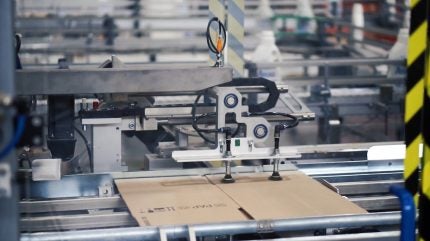
Greenyard Prepared has announced a partnership with Swedish packaging company Tetra Pak to launch a new cardboard packaging line at Greenyard’s facility in Bree, Belgium.
Greenyard Prepared, known for its freshly preserved fruits, vegetables, and ready-to-eat food products, serves three market segments – foodservice companies, retailers, and the food industry in general.
Its product portfolio ranges from conventional preserved food items packed in jars and tins to soups, dips, and sauces available in different types of packaging.
The latest partnership comes as Greenyard is expanding its packaging options to now include a sustainable cardboard solution.
According to Greenyard, the use of cardboard will provide consumers with an eco-friendly packaging option that reduces carbon dioxide (CO₂) emissions by nearly 80% compared to traditional materials.
The partnership with Tetra brings its Tetra Recart packaging format to Greenyard’s offerings.
Produced with up to 71% Forest Stewardship Council-certified paperboard from renewable sources, Recart packaging is light, compact, and easy to transport while also reducing CO₂ emissions by 80%.
Internal Tetra Pak calculations show that cardboard packaging allows for 33% more packages on the same shelf space, accommodating 2,000 packages compared to 1,500 for traditional options, making it an efficient choice for both retailers and consumers.
Tetra Pak key account director Stefan Follet said: “The Tetra Recart solution aligns perfectly with the needs of the food industry. Not only does it offer significant logistical advantages, but it also reduces carbon footprint associated with products, while preserving their nutritional and sensory qualities.”
Greenyard said that this collaboration is further expected to attract additional customers to its fruit and vegetable category.
With the cardboard packaging line, Greenyard aims to fill double-digit millions of units per year, with the start of the new line expected by early next year.
The line will enhance production capacity and improve the image of both the category and customer brands, as well as target new markets.
With a focus on pure-plant products such as pulses and vegetables, Greenyard is also exploring cardboard packaging for its sauces, mixes, and soups, promoting convenience and at-home recyclability for consumers.



